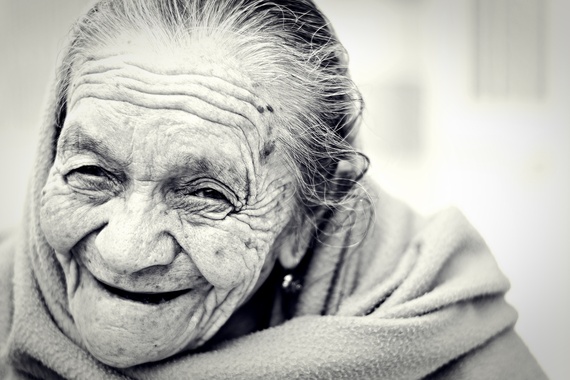
Bad news abounds these days. Violence. Hate. War. Terrorism. Environmental destruction. Political insanity. It all seems so...bad. And I don't know about you, but when my social media feed is filled with the news it has been of late, each story more disturbing than the last, I start to lose hope.
I start to wonder if we're going to make it as a civilization, or if we'll soon be handing the planet over to the cockroaches and mosquitoes (nothing seems to wipe them out).
But what if things aren't actually as bad as they seem? What if our view about what's happening in the world is distorted by the very means by which we learn about it? In fact, violence of all types has been on the decline for thousands of years.
According to Steven Pinker, Professor of Psychology at Harvard University, we're actually living in the most peaceful era since the existence of our species. Pinker crunched the numbers in his book, The Better Angels of Our Nature: Why Violence Has Declined, and displayed the facts in cold, hard diagrams.
Homicide, war-related deaths, genocide, rape, violence against children, direct deaths from political violence (including terrorism)--have all been steadily declining for decades. Seems inconceivable, right? The thing is, we usually don't see it this way because of both the nature of news and the function of our brains.
As Pinker says,
"News is about things that happen, not about things that don't happen. If you base your beliefs about the state of the world on what you read in the news, your beliefs will be incorrect. You never see a reporter standing on the streets of Angola, Sri Lanka, or Vietnam saying 'I'm here reporting that a war has not broken out today.' It's only by looking at data on the world as a whole that you get an accurate picture of the trends."
Don't get me wrong, I love social media. Our ability to be in constant contact with each other has created a web of support, connection, informed action, and entertainment that I truly appreciate. But our capacity to hear about atrocities in real-time, coupled with our frequent exposure to bad news, activates an inborn cognitive bias in our brains that predisposes us to remember negative input more readily than positive.
This can quickly create a formula for hopelessness.
Our brains have a built in "negativity bias," which means we pay far more attention to and are much more strongly influenced by negative than by positive information. Our brains are set up this way on purpose--being cautious keeps us safe.
But this negativity bias can override our perception of reality to the point that we see the world as much worse than it really is. And the sooner we realize that, the faster we can turn our attention toward solutions rather than problems.
We're more empowered to make a difference for positive change when we're feeling hopeful rather than fearful. In a state of fear, our brain's amygdala is activated--triggering the instincts of fight, flight, or freeze--which hinders the ability of the prefrontal cortex to do its best thinking.
Look, I'm not suggesting that we all go bury our heads in the sand. But each act of optimism, each morsel of good news, in this day and age, is a powerful act to help to turn the tide.
There is violence, there is hatred, there is darkness in the world, to be sure. But there is also immeasurable love, incalculable kindness, and infinite light. Look for small ways to spread optimism where you can--this can be as simple as a smile.
Every act of love, kindness, and hope--even each positive thought--counterbalances the opposite forces that are also present in the world.
As the song goes, Let there be peace on Earth, and let it begin with me.
Check out Kaia's blog at TheJoyPlan.com and connect with her on Twitter, Facebook, and Instagram. She loves to hear from readers!